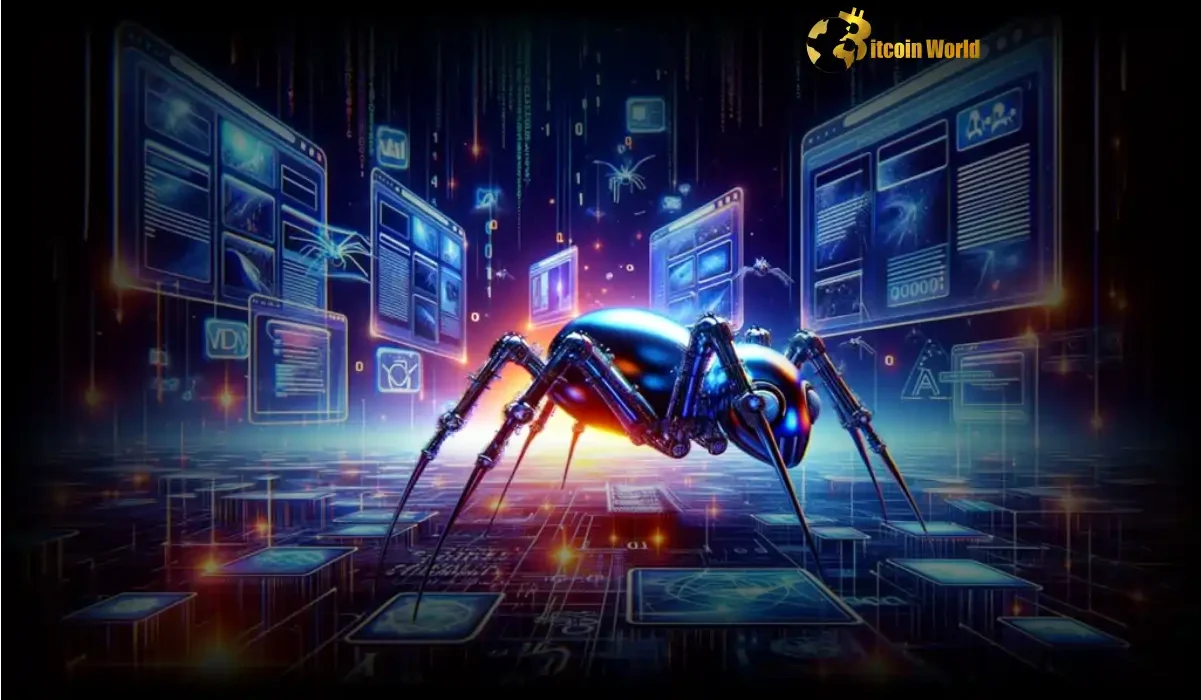Hold onto your hats, crypto enthusiasts and digital citizens! A silent storm is brewing in the open internet, and it’s impacting everyone from Wikipedia users to blockchain innovators. Wikimedia Commons, the vast digital library fueling the world’s knowledge, is facing an unprecedented challenge: a massive 50% bandwidth surge. But it’s not human curiosity driving this spike. It’s the relentless appetite of AI crawlers.
What’s Fueling This Bandwidth Surge? The Rise of AI Crawlers
Imagine your favorite open-source platform suddenly becoming sluggish, unresponsive, and costly to maintain. This is the reality Wikimedia Foundation is grappling with. In a recent blog post, they revealed a staggering statistic: multimedia downloads from Wikimedia Commons have jumped by half since January 2024. The culprit? Not increased human traffic, but swarms of automated data scrapers used to train hungry AI models.
Here’s the breakdown:
- Unprecedented Traffic: Wikimedia’s infrastructure is built for human traffic spikes, but the sheer volume from AI bots is overwhelming.
- Resource Intensive: 65% of Wikimedia’s most expensive traffic comes from bots, despite them accounting for only 35% of pageviews.
- Deep Data Dive: Bots target less popular content stored in core data centers, which are more costly to access than cached, frequently viewed pages.
Essentially, while humans browse specific topics, AI crawlers are bulk-reading vast amounts of data, digging deep into the archives of Wikimedia Commons and straining the system’s resources. This bulk reading behaviour is the primary reason for the dramatic bandwidth surge.
Why Should Crypto Users Care About Wikimedia’s Bandwidth Crisis?
You might be wondering, “What does this have to do with crypto?” The answer is: everything. The Wikimedia situation is a canary in the coal mine for the open internet, the very foundation upon which decentralized technologies and cryptocurrencies are built. If open-source platforms buckle under the pressure of data scrapers, it sets a dangerous precedent.
Consider these points:
- Threat to Open Source: If maintaining open platforms becomes prohibitively expensive due to bot traffic, it could stifle the growth of open-source projects vital to the crypto ecosystem.
- Increased Costs: Bandwidth costs money. For Wikimedia, this means diverting resources from their core mission of providing free knowledge. For smaller open-source crypto projects, it could be even more crippling.
- Centralization Risk: If open platforms are forced behind paywalls to survive, it undermines the decentralized ethos of the internet and crypto.
Data Scrapers: Are They Ignoring the Rules?
It’s not just about the volume of traffic; it’s also about ethics and respect for digital boundaries. Many websites, including Wikimedia, use “robots.txt” files to signal to bots which parts of their site should not be crawled. However, there’s growing evidence that some AI crawlers are ignoring these directives, essentially acting like digital trespassers.
This issue is not isolated to Wikimedia. Software engineer Drew DeVault and “pragmatic engineer” Gergely Orosz have voiced similar concerns, highlighting how data scrapers are driving up bandwidth costs for their own projects. It’s becoming a widespread problem impacting the entire open web.
Fighting Back Against the Bandwidth Surge: What’s Being Done?
The good news is, the open-source community is not taking this lying down. Wikimedia’s site reliability team is actively working to block malicious crawlers to protect their users. And across the tech world, solutions are emerging:
- Cloudflare’s AI Labyrinth: This innovative tool uses AI-generated content to slow down crawlers, creating a digital maze that wastes bot resources.
- Community Vigilance: Developers are sharing strategies and tools to identify and block rogue bots, fostering a collaborative defense.
- Ethical AI Development: The conversation is shifting towards more responsible AI development practices, including respecting robots.txt and considering the impact on open-source infrastructure.
The Future of the Open Internet: Paywalls or Progress?
The Wikimedia bandwidth surge crisis is a stark reminder that the open internet is not a limitless resource. The unchecked appetite of AI crawlers poses a real threat to its sustainability. The cat-and-mouse game between bot creators and defenders is likely to continue, but the stakes are high.
The ultimate question is: will this pressure force more platforms to retreat behind logins and paywalls, fragmenting the open web? Or can we find a sustainable balance that allows for both AI innovation and a thriving, accessible internet for all? The answer will shape the future of information sharing and, by extension, the future of the decentralized web and crypto.
To learn more about the latest AI market trends, explore our article on key developments shaping AI features.
Disclaimer: The information provided is not trading advice, Bitcoinworld.co.in holds no liability for any investments made based on the information provided on this page. We strongly recommend independent research and/or consultation with a qualified professional before making any investment decisions.


